AMD Ryzen 5 1600X CPU Review
Why you can trust Tom's Hardware
3DMark, Ashes of the Singularity, Battlefield 1
3DMark
We aren't big fans of using synthetic benchmarks to measure game performance, but 3DMark's DX11 and DX12 CPU tests provide useful insight into the amount of raw horsepower available to the game engine.
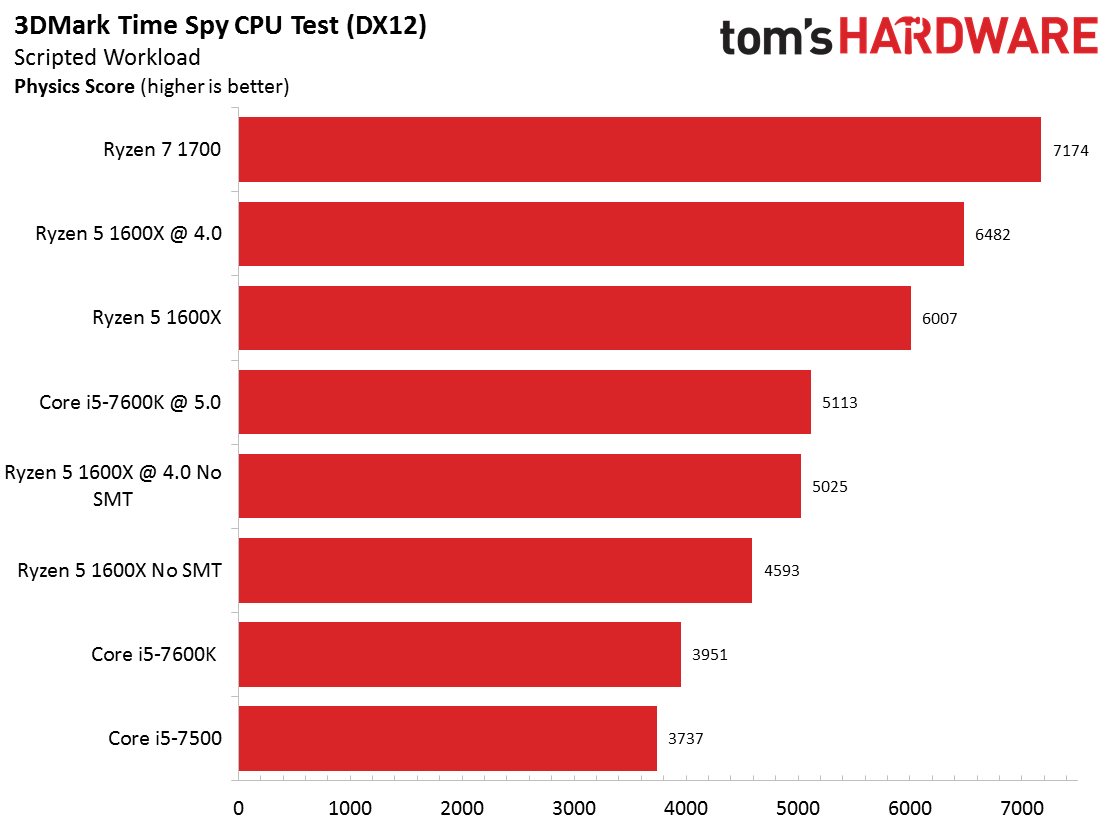
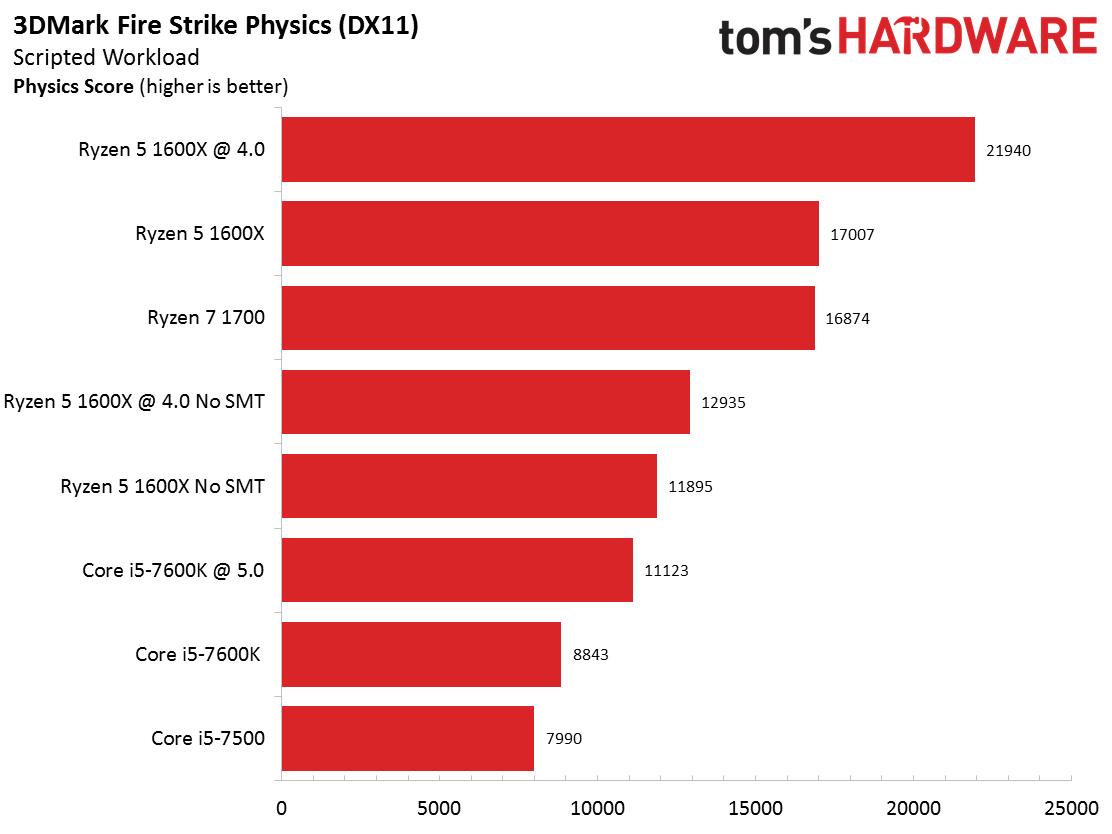
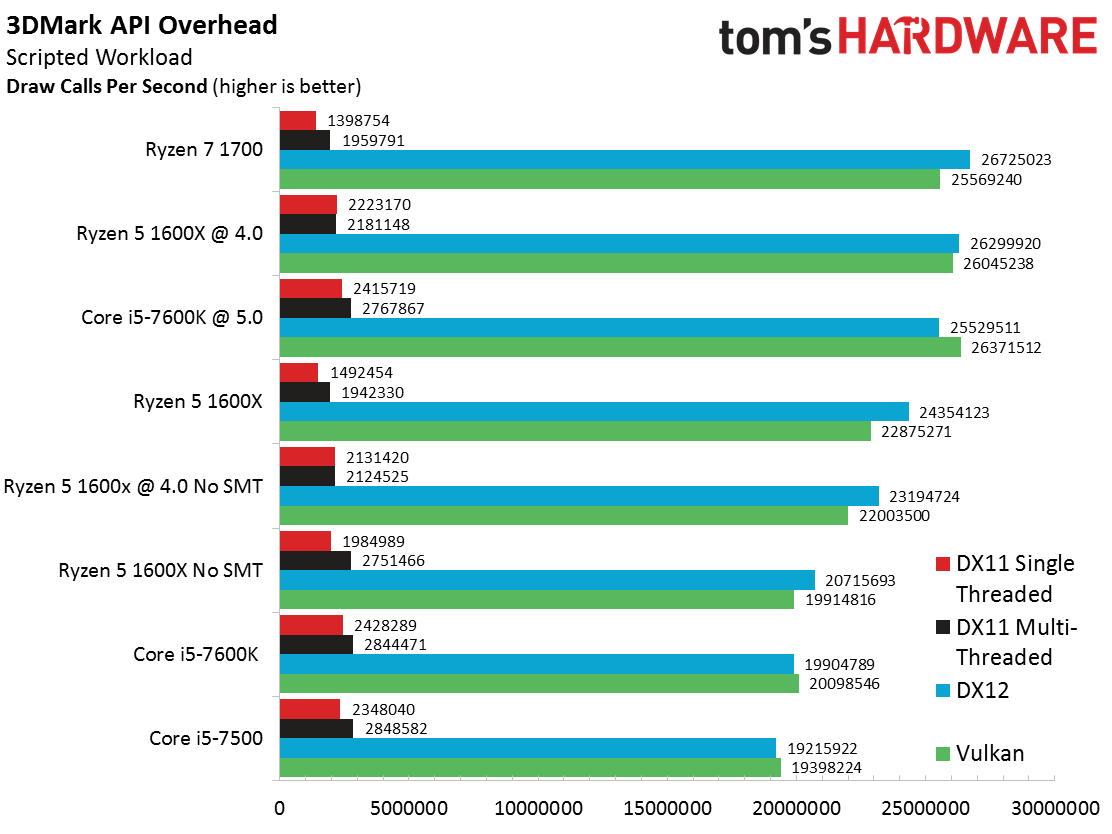
The six-core Ryzen 5 1600X can work on three times as many threads than Intel's Core i5s, so it easily trumps the competition in the parallelized physics metric. AMD's 1600X also ekes past the Ryzen 7 1700 in Futuremark's DX11 physics test.
Overclocking yields a 7.9% speed-up over the Ryzen 5 1600X's stock settings in DX12. Comparatively, the Core i5-7600K is overclocked 25% beyond its all-core 4 GHz Turbo Boost bin, yielding a 29% performance improvement.
Disabling Ryzen's SMT feature, which eliminates the CPU's six logical cores, results in a roughly ~20% performance loss in DX12. Our DX11 test illustrates a similar step backward, though this time the overclocked Ryzen loses 40% of its performance with SMT disabled.
The Ryzen 5 1600X is competitive in some API overhead tests, such as the DX12 benchmark where it leverage its extra threads. However, Kaby Lake's IPC throughput advantage shines through in the DX11 overhead tests. The Ryzen 5 falls behind Intel's Core i5 family during the DX11 single- and multi-threaded workloads, even with the help of an overclock. That helps explain Intel's oft-superior frame rates in real-world game tests.
Ashes of the Singularity: Escalation
From the launch of Ryzen 7 to now, Ashes of the Singularity demonstrates how a developer can optimize for AMD's Ryzen CPUs to great effect. A recent update improved the poor performance numbers we were seeing from Ryzen, creating much more interesting comparisons.
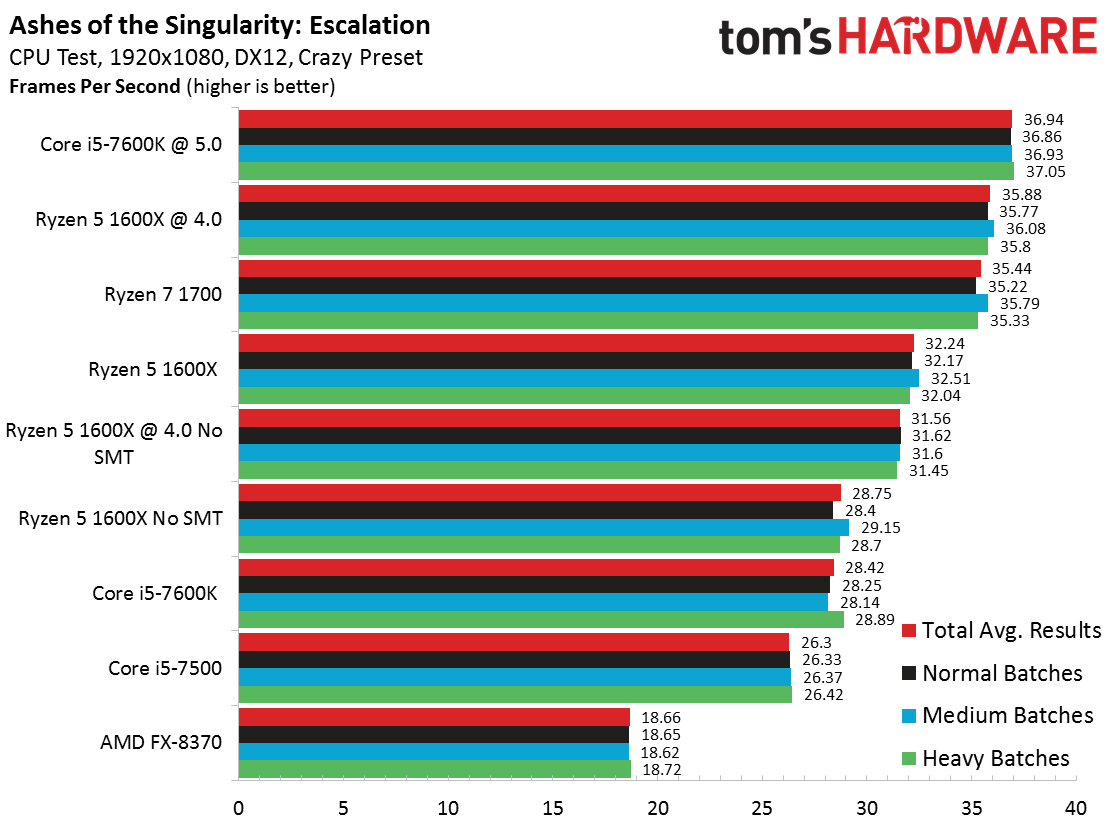
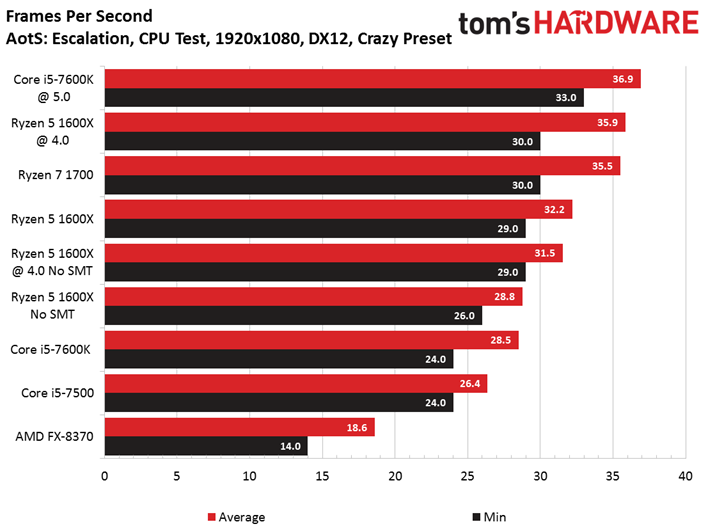
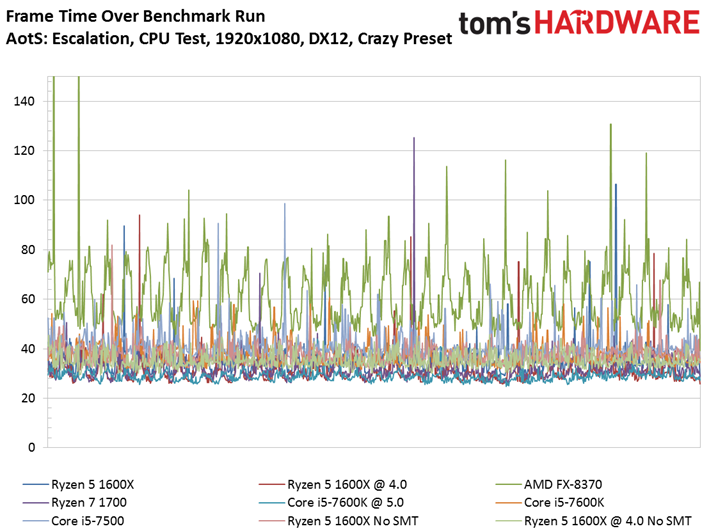
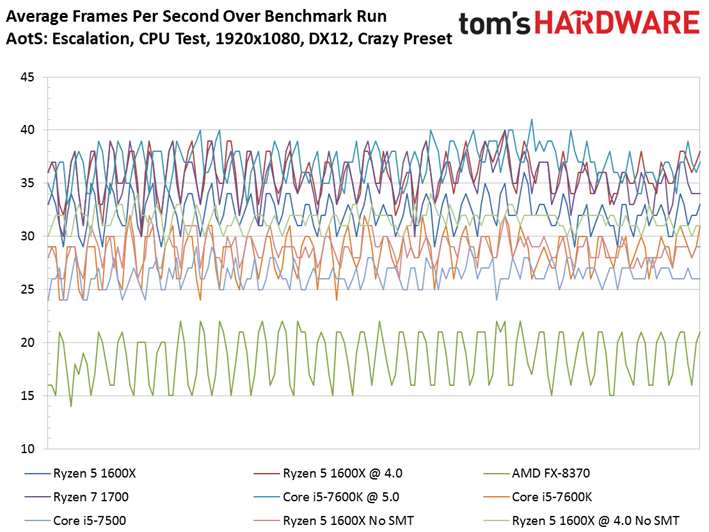
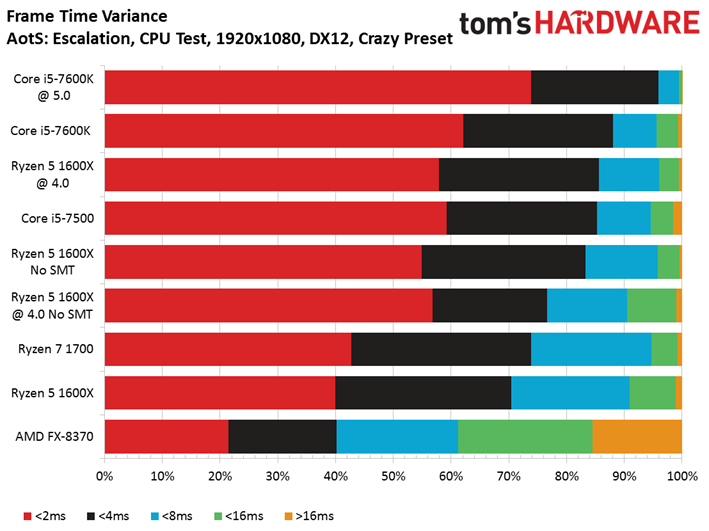
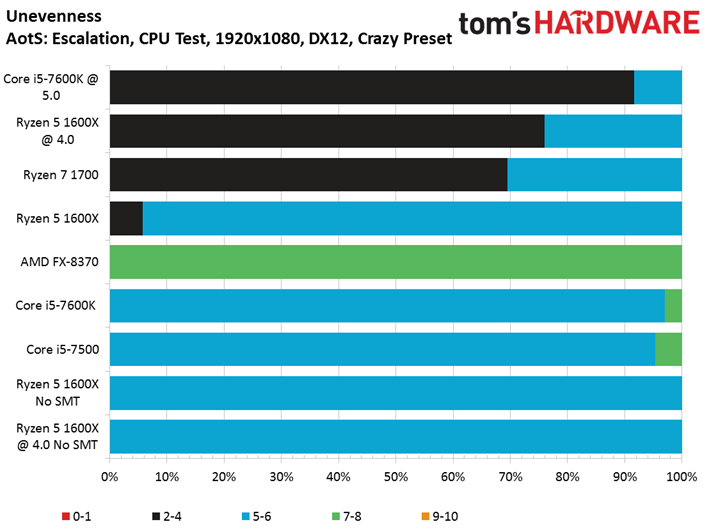
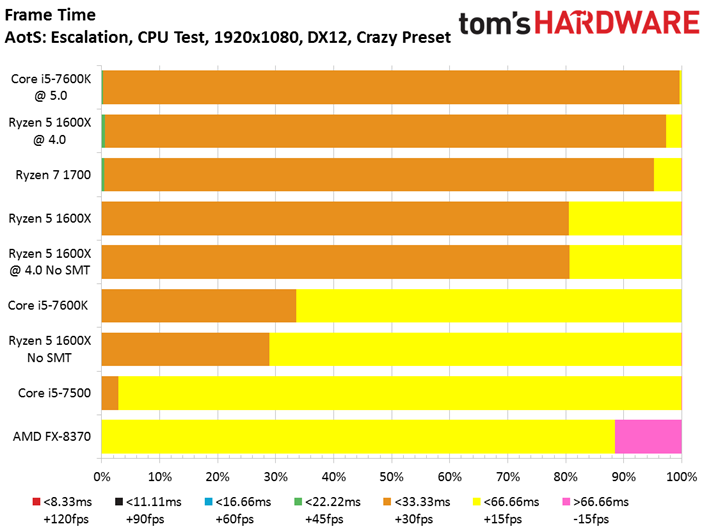
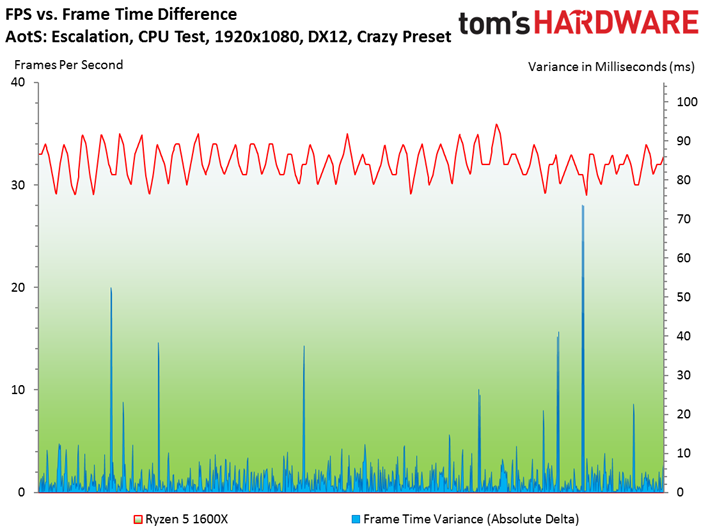
Ashes of the Singularity: Escalation's CPU test scales well with core/thread count. However, Intel's third-generation 14nm+ process provides much more overclocking headroom, allowing Core i5 to secure a first-place finish if you're willing to tune it. Don't get us wrong: with both CPUs at their stock settings, Ryzen 5 1600X is faster. Intel's Kaby Lake design simply has more headroom left for enthusiasts to exploit.
Get Tom's Hardware's best news and in-depth reviews, straight to your inbox.
The unoptimized version of Ashes offered notably higher performance with Ryzen's SMT feature disabled. However, the updated build does a better job of utilizing available resources. As a result, turning SMT off now hurts performance, rather than helping it.
Battlefield 1
We dialed Battlefield 1 up to the Ultra preset and repetitively took an armor-laden stroll across the O La Vittoria landscape.
Strangely, when we disabled Ryzen's SMT functionality, our recording utility stopped working in this game. As such, Battlefield 1 is the only title where we're missing results with SMT turned off.
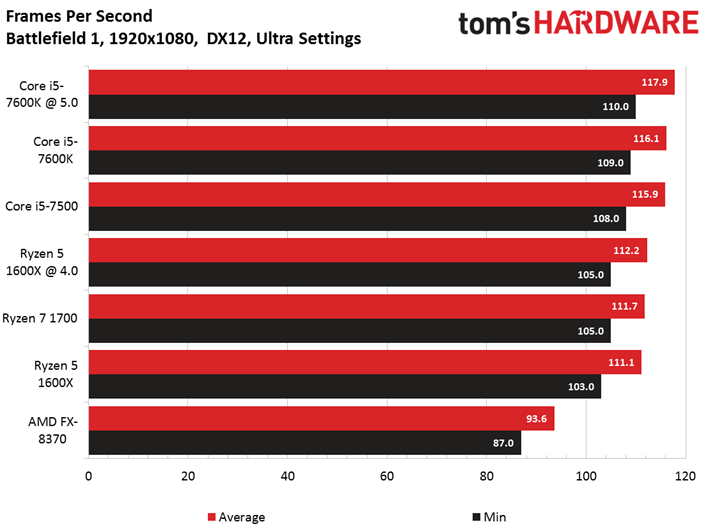
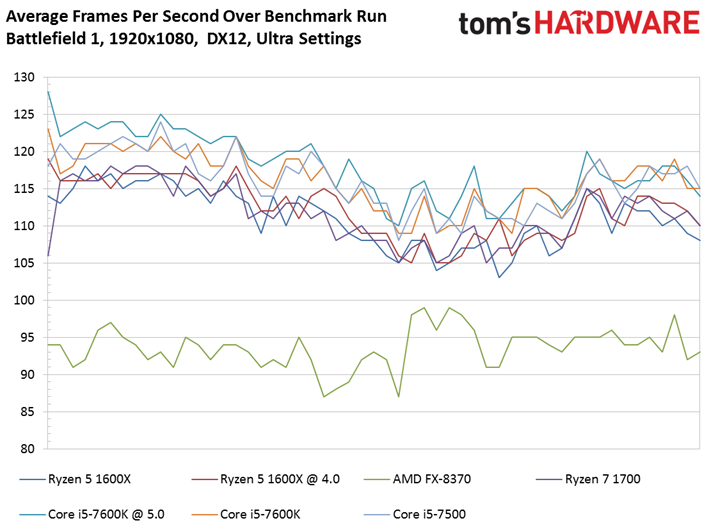
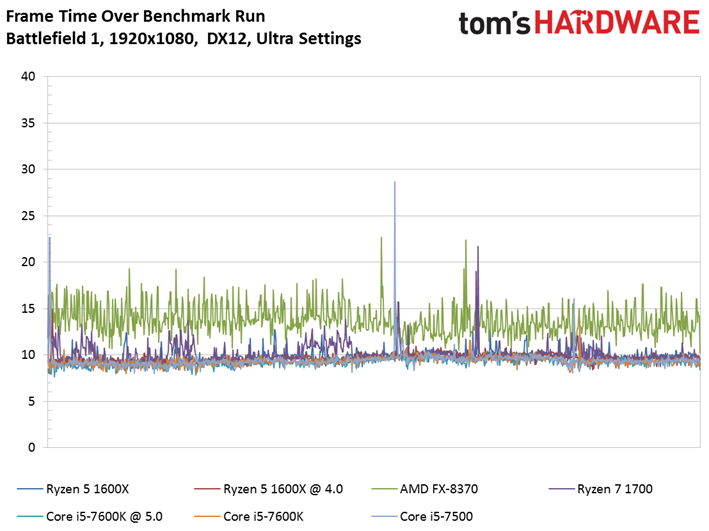
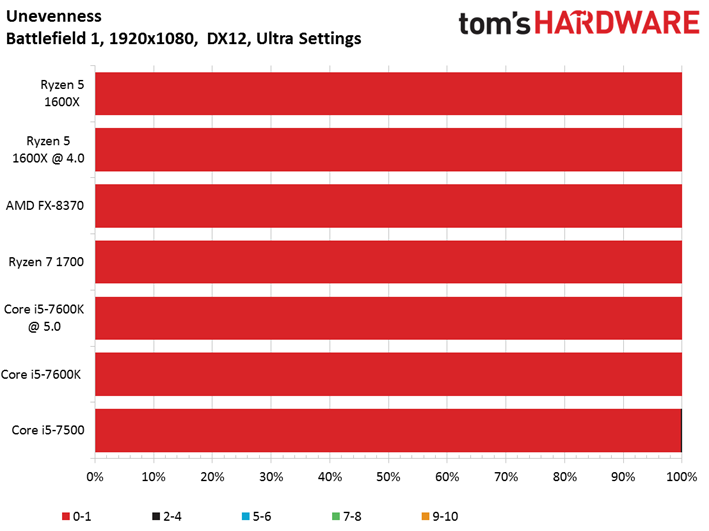
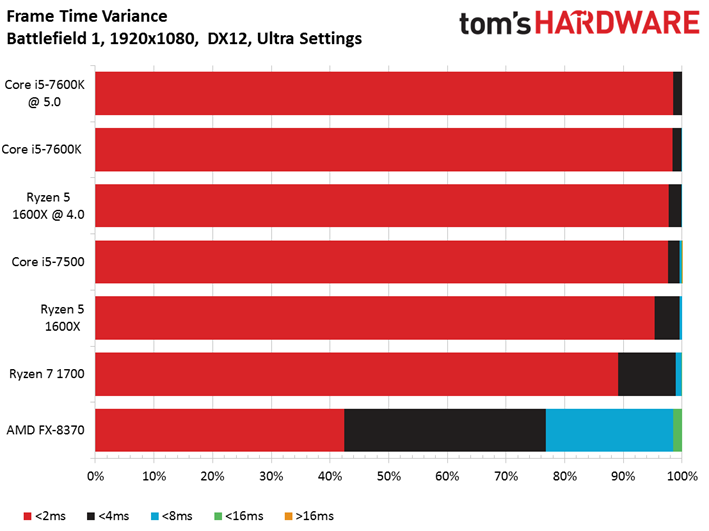
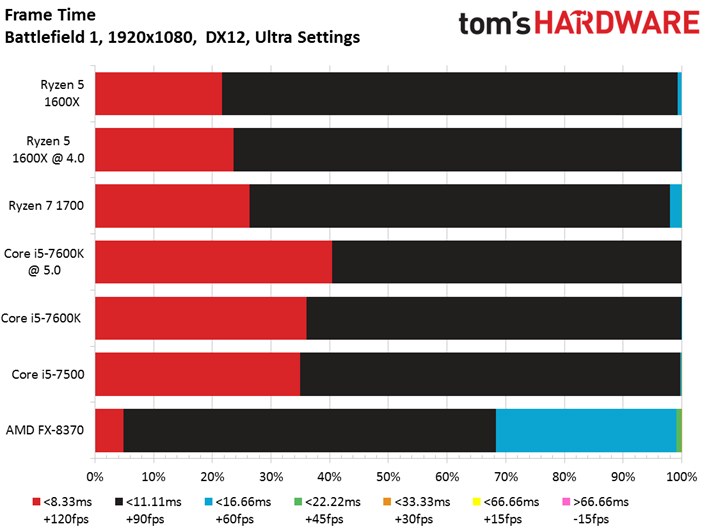
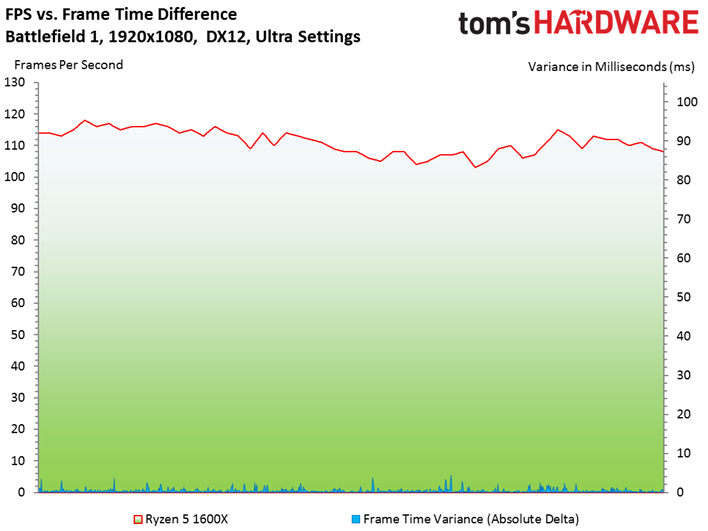
Surprisingly, the stock Ryzen 5 1600X falls behind Intel's processors. Even overclocking doesn't bridge the gap completely.
If you want a sense of context, though, check out the FX's best effort (particularly the frame time chart). AMD has come a long way since the Piledriver era.
MORE: Best CPUs
MORE: Intel & AMD Processor Hierarchy
MORE: All CPU Content
Current page: 3DMark, Ashes of the Singularity, Battlefield 1
Prev Page Overclocking, Creators Update & Test Setup Next Page Civilization VI AI & Graphics Test, Deus Ex: Mankind Divided
Paul Alcorn is the Editor-in-Chief for Tom's Hardware US. He also writes news and reviews on CPUs, storage, and enterprise hardware.
-
ninja_warrior If you can reliably overclock any of the ryzen 5/7 to 4.0, why would you get the 1600x over the 1700? Comparing a 1600x at 4.0 to a 1700 at 3.0 and then concluding that it's a better CPU when the 1700 can overclock exactly the same seems pretty stupidReply -
bloodroses A little disappointing for the Ryzen 5's imo. You'd think with the reduced core count you'd get better frequencies (and OC'ing) than what you get with the Ryzen 7.Reply
I honestly don't see a reason why to get a Ryzen 5 at this point since the i5 is definitely better for gaming and the Ryzen 7 is better for workstation use. The price alone takes it out of its own market. -
tamban A CPU review with only gaming benchmarks? Tom's hardware really likes Intel's hardware.Reply -
FormatC Reply
Try page 10 :P19547998 said:A CPU review with only gaming benchmarks? Tom's hardware really likes Intel's hardware.
31(!) Workstation benchmarks. Too less?
-
Oranthal How about a real world test where you play a game and run a 1080p stream then compare performance? How about 1440p? How about broadening the scope of testing? Nah just ignore the strength of more cores and focus on single thread work and a few games.Reply -
irish_adam you say that the i5 7600k comes out on top at stock but just on the gaming benchmarks i make it 4-4 with 2 draws. I wouldnt say that it came out on top at all. I would say they are pretty evenly matched at the moment. Also apart from the odd couple from both sides their frame difference was less than 10, at over 100FPS i'd pay good money that no one would be able to distinguish a difference between either system.Reply -
elbert Great review Paul and Igor. Best review I have seen given its the only review with 2 intel cpu's in the price range of Ryzen 5. The RAM info is great which shows that Ryzen gains a real 9ns latency advantage using higher clocked RAM on the Ryzen 5. Given the Ryzen 7 has less cache per core I would expect that gain to be higher.Reply
An issue that does stick out here is high price of the overclocking solution. How does the 7600k fair with a stock intel heatsink compared to the 1600x wraith spiral best overclocks? I think Ryzen has a real price advantage given the cooler required for a reasonable overclock.
Also how does the 7600K compare in games while twitch streaming against the 1600X? -
dstarr3 Reply19548037 said:How about a real world test where you play a game and run a 1080p stream then compare performance? How about 1440p? How about broadening the scope of testing? Nah just ignore the strength of more cores and focus on single thread work and a few games.
Maybe that's your real-world test, but that isn't mine. And am I the only one that can see the workstation benchmarks on page 10? Everyone seems to be ignoring them and then complaining that they aren't there.